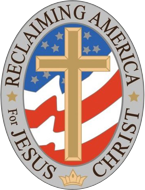Stephen Girard, a French immigrant, died in Philadelphia. His estate of over $7 million dollars was left with the stipulation that it be used to start an orphanage and school that did not allow the Bible. The city rejected this plan to separate the Bible from the education of our youth.
In a case that went before the United States Supreme Court (Vidal v. Girard’s Executors, 1844), the court ruled unanimously (9-0) that the Bible could not be extracted from the education of our youth.
Daniel Webster, who argued the case on the behalf of the government said this:

The U.S. Supreme Court rendered its unanimous opinion, stating:
And we cannot overlook the blessings, which such men by their conduct, as well as their instructions, may, nay must impart to their youthful pupils. Why may not the Bible, and especially the New Testament, without note or comment, be read and taught as a divine revelation in the college – its general precepts expounded, its evidences explained and its glorious principles of morality inculcated? What is there to prevent a work, not sectarian, upon the general evidences of Christianity, from being read and taught in the college by lay teachers? Certainly there is nothing in the will that proscribes such studies. Above all, the testator positively enjoins, “that all the instructors and teachers in the college shall take pains to instill into the minds of the scholars the purest principles of morality, so that on their entrance into active life they may from inclination and habit evince benevolence towards their fellow-creatures, and a love of truth, sobriety, and industry, adopting at the same time such religious tenets as their matured reason may enable them to prefer.”
Now, it may well be asked, what is there in all this, which is positively enjoined, inconsistent with the spirit or truths of Christianity? Are not these truths all taught by Christianity, although it teaches much more?
Where can the purest principles of morality be learned so clearly or so perfectly as from the New Testament? Where are benevolence, the love of truth, sobriety, and industry, so powerfully and irresistibly inculcated as in the sacred volume?…
It is unnecessary for us, however, to consider what would be the legal effect of a devise in Pennsylvania for the establishment of a school or college, for the propagation of Judaism, or Deism, or any other form of infidelity. Such a case is not to be presumed to exist in a Christian country; and therefore it must be made out be clear and indisputable proof. Remote inferences, or possible results, or speculative tendencies are not to be drawn or adopted for such purposes. There must be plain, positive, and express provision, demonstrating not only that Christianity is not to be taught; but that it is to be impugned or repudiated.

Recent Comments